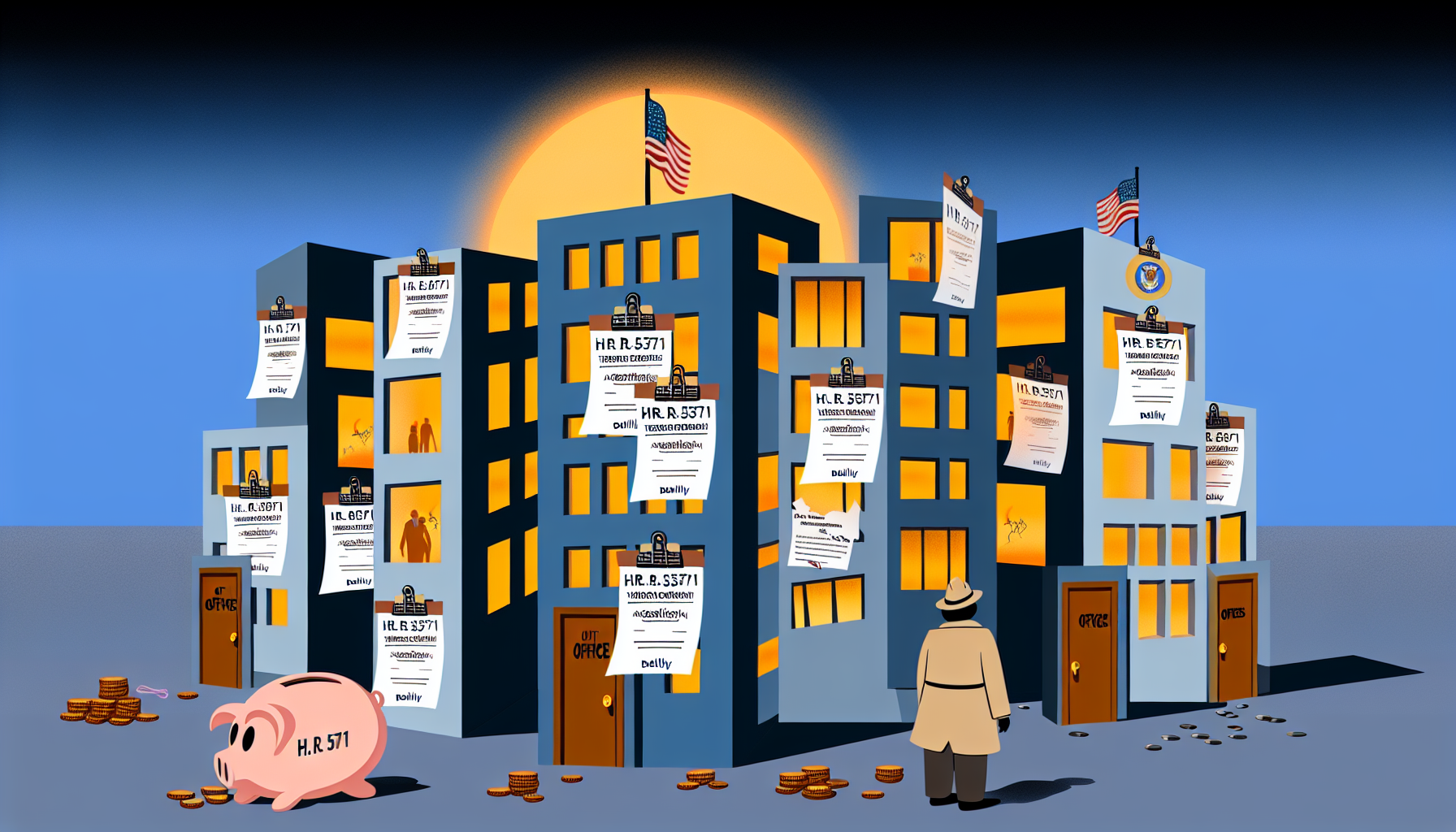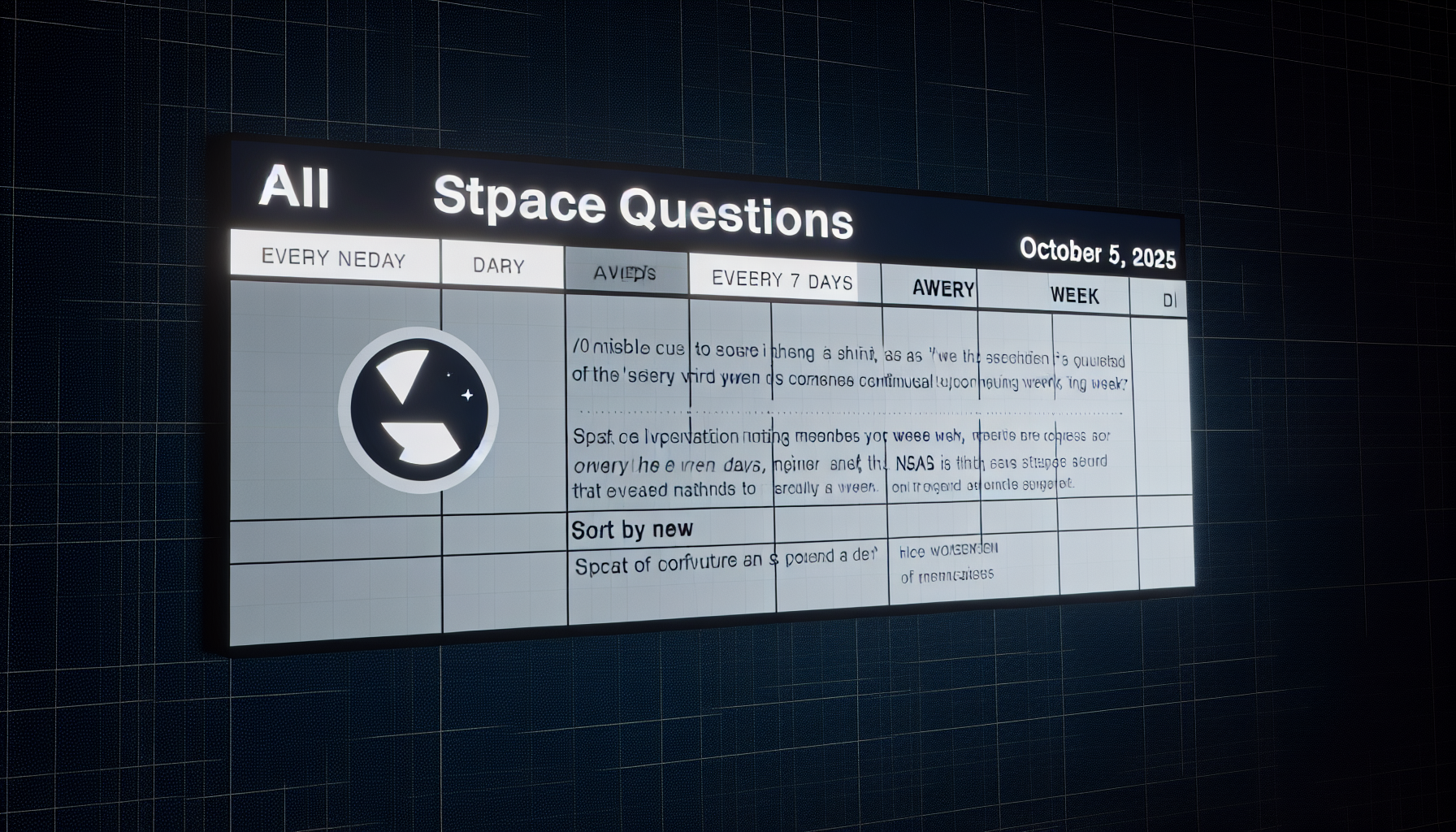Federal employees across multiple agencies say their out-of-office replies were centrally altered to blame Senate Democrats for the ongoing shutdown, replacing neutral autoresponders with partisan language. Reports published Oct. 1–2, 2025 cite internal templates circulated at several departments and workers who discovered their messages had been changed without permission. Employees who reverted to neutral text say the partisan phrasing reappeared, raising questions about who controlled agencywide email settings and whether political directives overrode standard communications policy. Ethics experts warned the practice could breach civil service norms and federal law governing political activity on official time and systems [4][1].
Key Takeaways
– shows at least nine agencies used partisan shutdown messaging, including VA, HUD and SBA, according to Oct. 2 reports citing employee accounts and internal templates. – reveals out-of-office replies were edited after H.R. 5371 passed Sept. 19, 2025, with some reverted messages changed again without employee consent at DOE. – demonstrates an SBA HR template claimed each delayed day blocks 320 small businesses from accessing $170 million in guarantees, urging staff to adopt partisan language. – indicates watchdogs warned of potential Hatch Act violations while shutdown limits enforcement, as Rep. Jamie Raskin and others urged GAO and OSC investigations. – suggests coordinated messaging amid ‘Radical Left Democrats’ banners, with at least nine agencies implicated across Oct. 1–2 reports documenting email templates and website changes.
How out-of-office replies were altered across agencies
At the Department of Education (DOE), multiple employees reported that neutral autoresponders were switched to blame Senate Democrats for the lapse in appropriations shortly after H.R. 5371 advanced, with several staffers saying they reset their messages only to see them changed back again without consent. One public administration scholar called the changes “incredibly coercive and invasive,” underscoring the power imbalance when management or political appointees can alter personal communications settings tied to official inboxes [1].
Internal guidance and templates encouraging partisan out-of-office language were described at the Department of Labor (DOL) and the Small Business Administration (SBA), according to documents obtained by reporters. The suggested replies framed the shutdown as the result of Democrats blocking H.R. 5371 and urged employees to standardize messaging across offices, a practice that raised alarms among career civil servants who said official communication should remain nonpartisan during appropriations disputes [4].
The scope extended well beyond a single department. At least nine federal agencies, including the Department of Veterans Affairs (VA), the Department of Housing and Urban Development (HUD), and the SBA, were cited for pushing or hosting partisan messaging that assigned blame to Democrats for the funding lapse. Lawmakers and outside ethics groups called for immediate inquiries to determine whether political directives had penetrated routine communications flows in ways that contravene federal rules [2].
Beyond email, agencies posted partisan banners and website notices that mirrored the email language. These included references to opponents as “Radical Left Democrats,” suggesting a cross-platform effort to align public-facing and employee communications with messaging that favors the Trump administration’s narrative of the shutdown’s cause, according to contemporaneous reporting and watchdog critiques [3].
Inside the templates: numbers, phrases, and reach
The numbers embedded in some templates were unusually specific for out-of-office replies. One SBA human-resources document urged employees to state that “each day Democrats delay funding stops an estimated 320 small businesses from accessing $170 million” in federal guarantees. The language also praised the Trump administration’s services and urged staff to adopt the phrasing broadly, sparking internal pushback and social-media sharing by employees disturbed by the overtly political tone [5].
Suggested messages promoted by other agencies echoed the same framing: Democrats were said to be blocking H.R. 5371, the administration’s preferred vehicle to keep funds flowing, and staff were encouraged to repeat this in autoresponders. Career officials warned that turning routine, externally-facing autoresponders into partisan talking points risks confusing the public and undermining the perception that agency communications adhere to neutral standards regardless of which party holds power [4].
Parallel website banners and internal templates amplified the preferred language across multiple departments, with several agencies incorporating slogans that labeled opponents the “Radical Left Democrats.” Ethics advocates described the unified language as irresponsible and potentially illegal given that it used official tools and channels to advance a partisan message during a politically sensitive funding impasse [3].
Timeline: from H.R. 5371 to Oct. 1–2 revelations
The chronology is clear. H.R. 5371 passed the House on Sept. 19, 2025, providing an immediate narrative fulcrum for administration-aligned offices to claim that Senate Democrats were obstructing the legislation and thus responsible for the shutdown. Soon after, DOE employees noticed that their out-of-office text had been altered from neutral to partisan and that attempts to restore nonpartisan replies were reversed, indicating a centralized or privileged control over communication settings inside the department [1].
Public reporting accelerated at the start of October. On Oct. 1, journalists published internal email guidance from agencies including DOL and SBA recommending autoresponders that explicitly blamed Senate Democrats for the funding lapse. These documents circulated widely within agencies, and employees quoted anonymously expressed fear that refusing to adopt the suggested language could bring retaliation or career repercussions during a highly politicized standoff [4].
By Oct. 2, the Associated Press and other outlets had confirmed that at least nine federal agencies were using similar partisan messaging across emails and public websites, multiplying calls for oversight. Rep. Jamie Raskin urged investigations, and ethics organizations called for formal reviews by the Government Accountability Office (GAO) and the Office of Special Counsel (OSC), the two entities with authority to evaluate compliance and discipline for political activity on the job [2].
Legal stakes: can out-of-office replies carry partisan blame?
Federal law permits employees to discuss policy in general terms, but using official position, authority, or resources to affect an election or engage in overtly partisan advocacy can implicate the Hatch Act. Experts said that centrally editing or directing out-of-office replies to adopt a partisan blame frame may meet that threshold because it deploys official communication channels and identity to advance a political narrative during a contested funding fight [1].
Watchdogs warned that the shutdown itself complicates enforcement. With many ethics and oversight functions curtailed, immediate disciplinary action is less likely, even as the alleged misconduct continues to generate public confusion and potential harm to trust in government communication. Lawyers and advocates nonetheless urged OSC and GAO to preserve evidence, including email templates, change logs, and directives, to enable post-shutdown accountability processes [3].
Civil service scholars underscored how forced uniformity of political language violates long-standing norms that draw bright lines between career staff and political appointees. Don Moynihan, a public policy professor, called the auto-editing of employees’ email messages “incredibly coercive and invasive,” arguing that commandeering individual out-of-office notices to promote a partisan narrative exerts pressure on nonpartisan staff in ways that chill speech and undermine neutral service delivery [1].
Members of Congress and advocacy groups including Public Citizen and Citizens for Responsibility and Ethics in Washington (CREW) labeled the cross-agency messaging irresponsible and potentially illegal. They urged prompt accountability measures and public transparency into who ordered the changes, which offices disseminated templates, and how many employees’ messages were altered, even as they acknowledged that full enforcement may need to wait until normal government operations resume [3][2].
What the numbers claim—and what they don’t
The SBA HR template’s centerpiece statistic—“320 small businesses” prevented daily from accessing “$170 million” in guarantees—was presented as a day-by-day cost of delay attributed to Democrats’ refusal to fund the government. While such figures can be meaningful when contextualized, employees and ethics experts noted the unusual forum: embedding them in out-of-office replies, which are generally used to set expectations for response time and direct the public to alternative points of contact, not to apportion partisan blame [5].
NBC’s reporting added that some templates intertwined these quantitative claims with praise for the “Trump administration” and urged uniform adoption across offices, raising concerns about the blurring of informational and political content in standard communications. Career staff warned that steering the public to adopt a partisan understanding of legislative dynamics via autoresponders could backfire, erode trust, and flood front-line offices with politicized responses instead of directing citizens to services during a shutdown [4].
In parallel, the Associated Press documented at least nine agencies deploying partisan language in their outward-facing communications. That breadth, combined with identical phrases and cross-platform banners, suggested central coordination or shared guidance, which investigators could verify by tracing document metadata, distribution lists, and IT change logs tied to email templates and web content management systems [2].
Next steps: investigations, evidence, and restoring neutral comms
Lawmakers and watchdogs have asked GAO and OSC to investigate whether centrally editing or directing out-of-office replies to blame Democrats violates the Hatch Act or other civil service protections. In practice, investigators will likely seek the original template files, policy memos, and system-level logs showing who had authority to alter employee autoresponders and when, as well as any directives transmitted through HR or public affairs channels that instructed uniform partisan messaging [2].
The Guardian reported that enforcement during the shutdown is constrained, but documentation preserved now will shape what remedies are possible later. If OSC finds a violation, remedies can range from warnings to removal, depending on the severity and whether political appointees used their authority to compel career staff to adopt partisan language. Ethicists emphasized that clear rules for federal communications—especially during appropriations lapses—should prioritize service continuity and nonpartisanship to avoid public confusion [3].
Meanwhile, the administration’s communications strategy remained clear: frame the shutdown as a function of Senate Democrats blocking H.R. 5371, using official platforms to amplify that narrative across emails and websites. NBC characterized the approach as the Trump administration using government websites and emails to pin shutdown blame on Democrats, a strategy that triggered immediate calls for ethical review from watchdog organizations and Democratic lawmakers concerned about the politicization of basic public-service touchpoints [4].
Sources:
[1] WIRED – Government Workers Say Their Out-of-Office Replies Were Forcibly Changed to Blame Democrats for Shutdown: www.wired.com/story/government-workers-say-their-out-of-office-replies-were-forcibly-changed-to-blame-democrats-for-shutdown” target=”_blank” rel=”nofollow noopener noreferrer”>https://www.wired.com/story/government-workers-say-their-out-of-office-replies-were-forcibly-changed-to-blame-democrats-for-shutdown
[2] Associated Press – The blame game is on at federal agencies, where political messages fault Democrats for the shutdown: https://apnews.com/article/ff5dab4e9a3a74af0c94fd9b184d9311 [3] The Guardian – Federal agencies blaming Democrats for shutdown in potentially illegal move: www.theguardian.com/us-news/2025/oct/02/government-shutdown-emails-blaming-democrats” target=”_blank” rel=”nofollow noopener noreferrer”>https://www.theguardian.com/us-news/2025/oct/02/government-shutdown-emails-blaming-democrats
[4] NBC News – Trump administration uses government websites, emails to pin shutdown on Dems: www.nbcnews.com/politics/trump-administration/education-department-employees-email-automatically-changed-rcna235211″ target=”_blank” rel=”nofollow noopener noreferrer”>https://www.nbcnews.com/politics/trump-administration/education-department-employees-email-automatically-changed-rcna235211 [5] Washington Examiner – Federal agency advises furloughed workers to blame Democrats in out-of-office reply: www.washingtonexaminer.com/news/white-house/3832847/sba-directs-furloughed-federal-workers-blame-democrats-shutdown-out-office-reply/” target=”_blank” rel=”nofollow noopener noreferrer”>https://www.washingtonexaminer.com/news/white-house/3832847/sba-directs-furloughed-federal-workers-blame-democrats-shutdown-out-office-reply/
Image generated by DALL-E 3











Leave a Reply